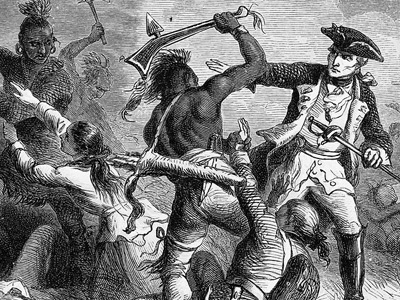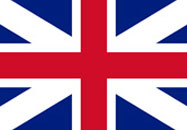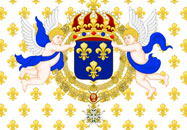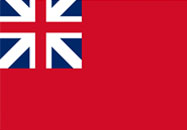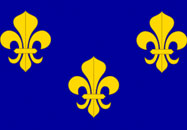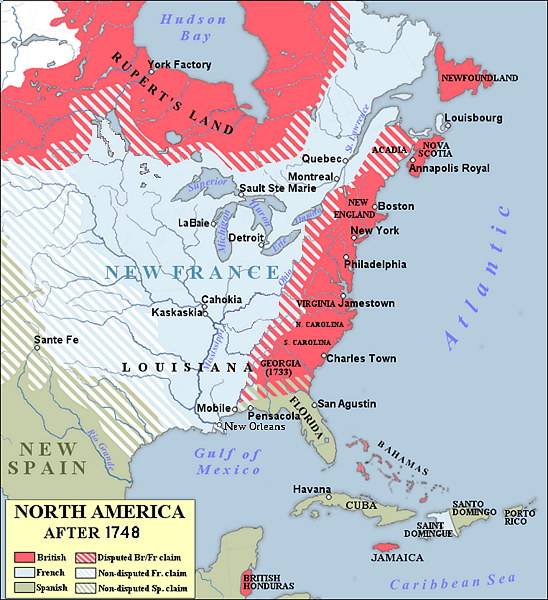French and Indian War (1754–1763)
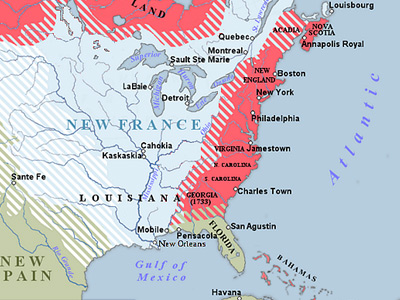
End of the War
Most of the fighting between France and Britain in continental North America ended in 1760, while the fighting in Europe continued. The notable exception was the French seizure of St. John's, Newfoundland. When General Amherst heard of this surprise action, he immediately dispatched troops under his nephew William Amherst, who regained control of Newfoundland after the Battle of Signal Hill in September 1762.
Many troops from North America were reassigned to participate in further British actions in the West Indies, including the capture of Spanish Havana when Spain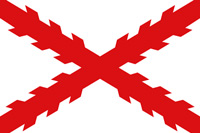 The Spanish Empire was a colonial empire governed by Spain and its predecessor states between 1492 and 1976. One of the largest empires in history, it was the first to usher the European Age of Discovery and achieve a global scale, controlling vast territory. It was one of the most powerful empires of the early modern period, reaching its maximum extent in the 18th century. belatedly entered the conflict on the side of France
The Spanish Empire was a colonial empire governed by Spain and its predecessor states between 1492 and 1976. One of the largest empires in history, it was the first to usher the European Age of Discovery and achieve a global scale, controlling vast territory. It was one of the most powerful empires of the early modern period, reaching its maximum extent in the 18th century. belatedly entered the conflict on the side of France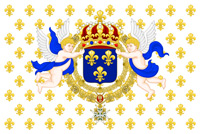 The Kingdom of France is the historiographical name or umbrella term given to various political entities of France in the medieval and early modern period. It was one of the most powerful states in Europe since the High Middle Ages. It was also an early colonial power, with possessions around the world. Colonial conflicts with Great Britain led to the loss of much of its North American holdings by 1763. The Kingdom of France adopted a written constitution in 1791, but the Kingdom was abolished a year later and replaced with the First French Republic., and a British
The Kingdom of France is the historiographical name or umbrella term given to various political entities of France in the medieval and early modern period. It was one of the most powerful states in Europe since the High Middle Ages. It was also an early colonial power, with possessions around the world. Colonial conflicts with Great Britain led to the loss of much of its North American holdings by 1763. The Kingdom of France adopted a written constitution in 1791, but the Kingdom was abolished a year later and replaced with the First French Republic., and a British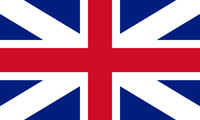 The Kingdom of Great Britain was a sovereign country in Western Europe from 1 May 1707 to the end of 31 December 1800. The state was created by the 1706 Treaty of Union and ratified by the Acts of Union 1707, which united the kingdoms of England (which included Wales) and Scotland to form a single kingdom encompassing the whole island of Great Britain and its outlying islands, with the exception of the Isle of Man and the Channel Islands. expedition against French Martinique in 1762, led by (the now) Major General Robert Monckton.
The Kingdom of Great Britain was a sovereign country in Western Europe from 1 May 1707 to the end of 31 December 1800. The state was created by the 1706 Treaty of Union and ratified by the Acts of Union 1707, which united the kingdoms of England (which included Wales) and Scotland to form a single kingdom encompassing the whole island of Great Britain and its outlying islands, with the exception of the Isle of Man and the Channel Islands. expedition against French Martinique in 1762, led by (the now) Major General Robert Monckton.
General Amherst also oversaw the transition of French forts in the western lands to British control. The policies he introduced in those lands disturbed large numbers of Indians, and contributed to the outbreak in 1763 of the conflict known as Pontiac's Rebellion. This series of attacks on frontier forts and settlements required the continued deployment of British troops, and was not resolved until 1766.

The descent of the French on St. John's, Newfoundland, 1762

The descent of the French on St. John's, Newfoundland, 1762
( Click image to enlarge)
The war in North America officially ended with the signing of the Treaty of Paris on 10 February 1763, and war in the European theatre of the Seven Years' War was settled by the Treaty of Hubertusburg on 15 February 1763. The British offered France the choice of surrendering either its continental North American possessions east of the Mississippi or the Caribbean islands of Guadeloupe and Martinique, which had been occupied by the British. France chose to cede the former, but was able to negotiate the retention of Saint Pierre and Miquelon, two small islands in the Gulf of St. Lawrence, along with fishing rights in the area. They viewed the economic value of the Caribbean islands' sugar cane to be greater and easier to defend than the furs from the continent. The contemporaneous French philosopher Voltaire referred to Canada disparagingly as nothing more than a few acres of snow. The British, for their part, were happy to take New France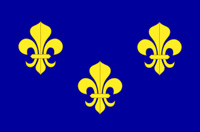 New France was the territory colonized by France in North America, beginning with the exploration of the Gulf of Saint Lawrence by Jacques Cartier in 1534 and ending with the cession of New France to Great Britain and Spain in 1763 under the Treaty of Paris. In the 16th century, the lands were used primarily to draw from the wealth of natural resources such as furs through trade with the various indigenous peoples. In the seventeenth century, successful settlements began in Acadia and in Quebec., as defence of their North American colonies would no longer be an issue and also because they already had ample places from which to obtain sugar. Spain, which traded Florida to Britain to regain Cuba, also gained Louisiana, including New Orleans, from France in compensation for its losses. Great Britain and Spain also agreed that navigation on the Mississippi River was to be open to vessels of all nations.
New France was the territory colonized by France in North America, beginning with the exploration of the Gulf of Saint Lawrence by Jacques Cartier in 1534 and ending with the cession of New France to Great Britain and Spain in 1763 under the Treaty of Paris. In the 16th century, the lands were used primarily to draw from the wealth of natural resources such as furs through trade with the various indigenous peoples. In the seventeenth century, successful settlements began in Acadia and in Quebec., as defence of their North American colonies would no longer be an issue and also because they already had ample places from which to obtain sugar. Spain, which traded Florida to Britain to regain Cuba, also gained Louisiana, including New Orleans, from France in compensation for its losses. Great Britain and Spain also agreed that navigation on the Mississippi River was to be open to vessels of all nations.
HISTORY
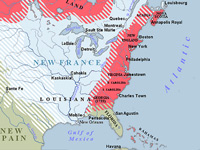
RESOURCES
This article uses material from the Wikipedia article "French and Indian War", which is released under the Creative Commons Attribution-Share-Alike License 3.0.
© Stories Preschool. All Rights Reserved.
